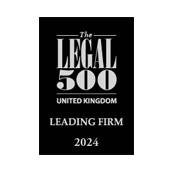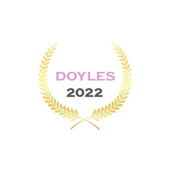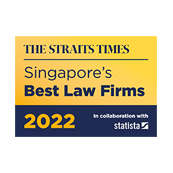Family non-court dispute resolution lawyers
We have you and your family covered, whatever option you choose
Instructing us to help resolve your separation means that you will benefit from our strength, depth of expertise and unrivalled experience as solicitors, mediators, evaluators, collaborative lawyers and arbitrators. Whichever of these options you choose, you will be protected. All you need to do is choose the option (or combination of options) that suit you and your family best.
Mediation is a voluntary, confidential and non-binding option involving you and your (former) partner/spouse holding a series of meetings with a family mediator. The mediator facilitates the discussions and provides valuable legal information to enable you to reach future-focussed, practical solutions. All Withers mediators are also family solicitors and so are adept at guiding couples in their discussions to reach agreement on the financial aspects arising from their divorce or separation, and any arrangements about children.
Before mediation begins the mediator will speak to each person to check whether mediation is a suitable option or whether a different model might be better. Mediation can be quicker and cheaper than litigation and almost always results in a good grounding for future dialogue and communication.
Mediation works best when each person also has individual legal advice from their solicitor and in addition to being mediators ourselves, when acting as your solicitor, we can support and advise you throughout our mediation sessions.
Find out more about mediation in our FAQ section.
Uncouple is an innovative and award-wining service which is unique to Withers. Uncouple allows both of you to instruct Withers. This option is a 'one stop shop' which takes a couple through the negotiating and determination process from start to finish, all under one roof, involving elements of several non-court options, including mediation, neutral evaluation and, if required, a binding arbitration. It is bespoke, flexible, speedy and confidential.
The aim of Uncouple is to help couples step away from the traditional (or collaborative) route, when the court option isn't needed. It takes the best elements of all of the non-court options and the court options.
To find out more, see Uncouple and speak to us about how it might work for your situation and your family.
This option involves you instructing us to advise you and act for you as an individual. This is the traditional route, which usually involves conducting negotiations through each person's lawyer. We will advise you and act for you, and you alone. If the negotiations do not result in an agreement and the court process reaches a final hearing, the court has broad discretion to impose its decision on your case in a binding court order.
Each person having a solicitor does not automatically mean that court proceedings are necessary. Whilst some issues require a court hearing, in most cases a negotiated outcome is achieved without the need to go to court. In this scenario, solicitors and their clients negotiate through correspondence and/or in person through a series of 'without prejudice' meetings, either together in one room, or in separate rooms, with shuttle negotiations being conducted between the two teams. Any solution reached can be made into a binding court order. Solicitors and barristers can also advise couples alongside mediation and arbitration processes.
Another possible route is through collaborative negotiations, whereby each person instructs a collaboratively trained lawyer with whom they agree objectives and opt not to engage in court proceedings. There follows a series of round table meetings at which information is shared and negotiations take place. The collaborative practitioners can give legal advice to their clients, but all discussions about settlement and case management are shared.
If an agreement is reached it can be made into a binding court order and there is no need to attend court. Withers' collaborative lawyers are highly skilled and experienced and if we act for you as a collaborative lawyer, again, we will advise you on your individual situation.
This is where the couple appoint an experienced lawyer as a neutral 'evaluator' who considers each person's position and the evidence and explains what they think a court would decide based on this information. It can be helpful for both child arrangements issues and for financial disputes. In a financial context, this is usually known as a "Private Financial Dispute Resolution Appointment" (a private FDR or PFDR) – see below. The evaluator's indication is not binding, but the couple can certainly choose to settle on the basis of the indication, or to use it as the basis for further negotiations.
There are two sorts of FDRs – court ordered FDRs and private FDRs.
A court FDR is a compulsory court appointment made as part of financial proceedings on divorce or dissolution of your civil partnership. Proposals for settlement are shared and sent to the court on behalf of each person, and then there is a court appointment – the FDR – attended by each person and their solicitors and barristers. This takes place before a family judge, who gives their non-binding indication of what the likely outcome will be if the matter continued to a final trial at court. This indication can help to focus negotiations and discussions. If a resolution is reached, it can be approved by the court there and if not, and if subsequent negotiations are not successful, the case will continue to trial at court.
A private FDR is the same, but the difference is that it is not imposed by the court. It is voluntary, private and flexible. You jointly ask an experienced judge (a barrister or solicitor or retired judge) to review the documentation and to give their view on what the outcome should be, but this takes place in a private meeting rather than a formal court appointment. If you reach an agreement it can be sent to the court online or on paper to make it legally binding. It is also sometimes called a 'Neutral Evaluation'.
Arbitration is a private way to resolve family disputes that does not involve negotiations. Instead, the outcome is determined by a third party – the arbitrator - who is usually a practicing solicitor, barrister or retired judge, who is chosen and instructed on a private basis. In this option, each person has their own solicitor and once they have signed the agreement to arbitrate, they jointly pay for an independent arbitrator to make a binding decision. This can either be on a specific matter relevant to your situation (such as how to value a business) or a decision on a final outcome. Arbitration is bespoke, confidential and can be conducted at the pace suited to the those involved. The arbitrator's decision will need to be converted into a court order by the court and this is usually done online.
Withers helped to pioneer and run Family Arbitration Training in England and beyond and we have a number of qualified arbitrators in our team.
All of the options outlined above are underpinned by each person having full and clear financial information about all of the finances and any other relevant circumstances. This is nothing to worry about. It is a legal requirement and prerequisite to meaningful and fruitful settlement discussions, as well as enforceable court orders.
Divorce and family FAQs
Divorce and family law issues can be complex, but informed and tailored advice will guide you through the risks and requirements to arrive at the solution you are looking for. Here we provide answers to the questions our clients most frequently ask us.
Recent recognition
Our team

Suzanne Todd
Partner | London

Claire Blakemore
Partner | London

Michael Gouriet
Partner | London

Billy Ko
Partner | Hong Kong

Adele Pledger
Partner | London

Jennifer Dickson
Partner | London

Ivan Cheong
Partner | Singapore

Anisha Ramanathan
Partner | Hong Kong
Insight
Join the club
We have lots more news and information that you'll find informative and useful. Let us know what you're interested in and we'll keep you up to date on the issues that matter to you.
Get in touch
Our website will give you a flavor of the advice we provide - if you would like to talk to us for more information, please contact our client services team who will be happy to assist.




























